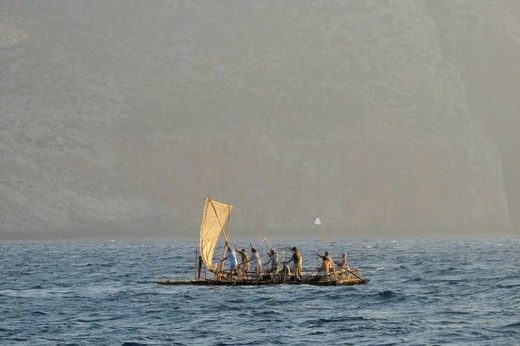Until quite recently, archaeologists have supposed that the seas and oceans represented a barrier to human dispersal, and that islands were among the last places on earth to be colonized by people, only fairly recently, as part of the worldwide spread of modern humans. But is that picture still correct? Startling new data have come to light just in the last few years, in parts of the Mediterranean and in island Southeast Asia, that have been claimed as evidence for a far longer antiquity for seafaring, reaching back hundreds of thousands, and perhaps as much as a million years. Naturally, these claims have attracted widespread attention and much discussion — and not only among archaeologists. This lecture outlines what we know, with reasonable certainty, about patterns of global maritime dispersal in the past few tens of thousands of years, before turning to present the new evidence and its strengths and weaknesses. In trying to understand it, we will need to consider information (amongst other things) from ethnographic analogy, experimental seafaring, and our current knowledge of the relative configurations of land and sea over the course of the Pleistocene era. Some of the bold assertions made in the past few years require more supporting data before they can be accepted. That cautious conclusion does not detract from the excitement and importance of this fast-moving field of research in archaeology.
John F. Cherry is the Joukowsky Family Professor of Archaeology at the Joukowsky Institute for Archaeology and the Ancient World, Brown University. He received his Ph.D. in Archaeology from the University of Southampton (UK). His areas of specialization are Aegean and Mediterranean Prehistory, Caribbean Archaeology, Archaeology of the Southern Caucasus, Island Archaeology, State Formation, Regional Survey, and Lithic Analysis. He has excavated in Texas, Macedonia, Italy, Armenia, Montserrat and Great Britain. His forthcoming book is The Archaeological History of Montserrat in the Caribbean.
Short bibliography on lecture topic
https://www.sciencemag.org/news/2018/04/neandertals-stone-age-people-may-have-voyaged-mediterranean
https://www.sott.net/article/388503-Have-humans-been-sailing-the-seas-for-a-million-years
Photo: Experimental voyages, like this one to Crete in 2014, show the scale of the challenges that faced early sailors (Bob Hobman)


